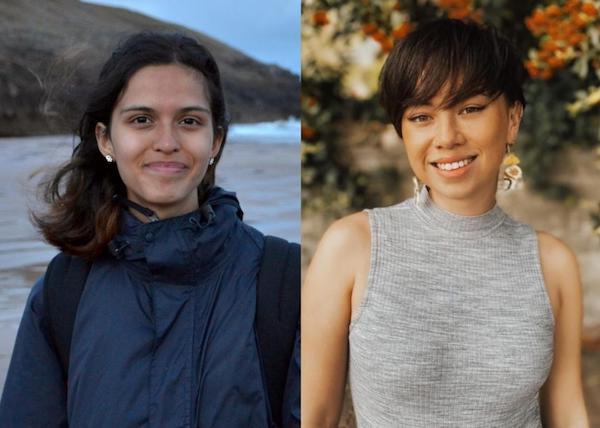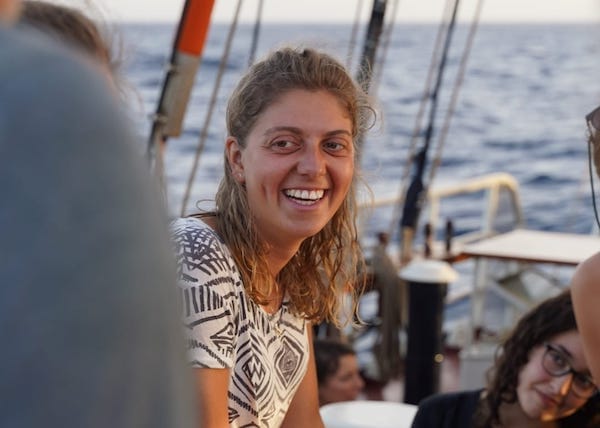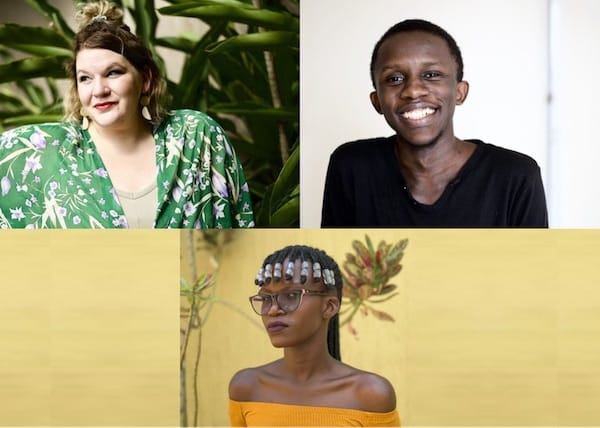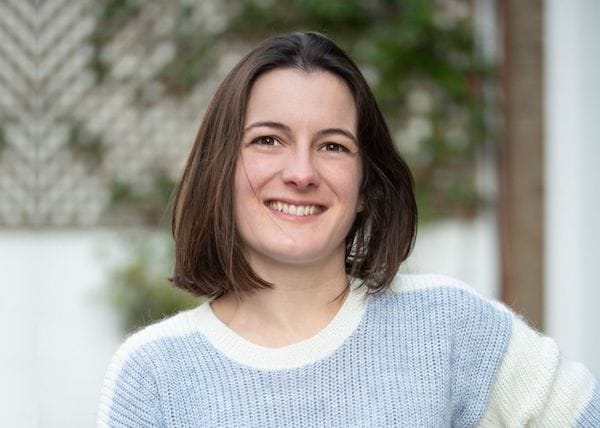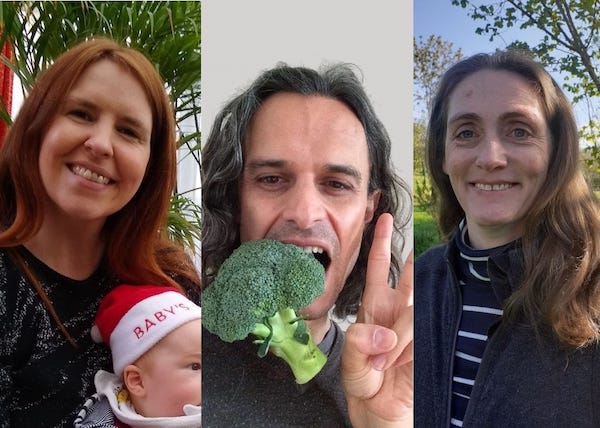This is episode eight of our 2021 podcast series. Listen to the episode here and find other episodes and previous series here.
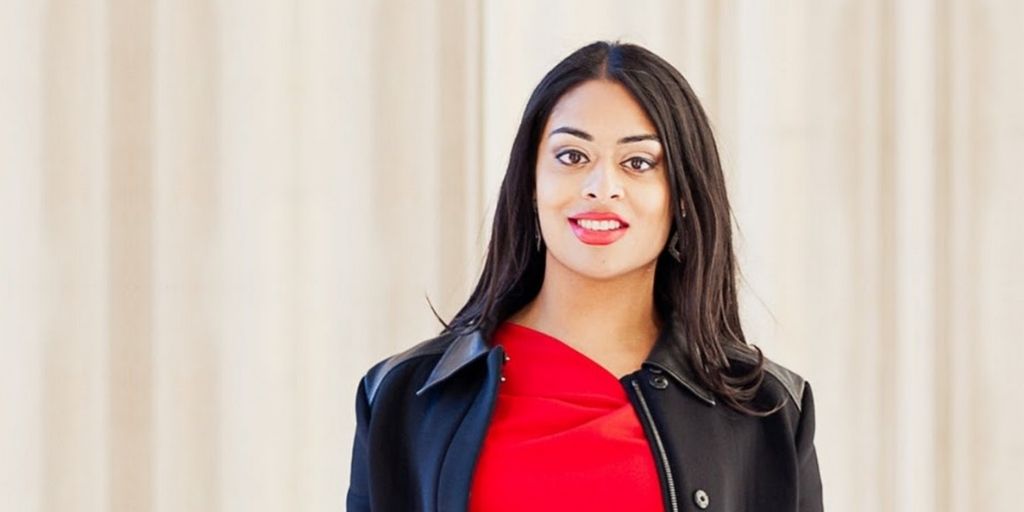
In this episode, we talk to Dr Sweta Chakraborty about risk and behaviour, about how the pandemic and climate change are connected, and what the pandemic tells us about our relationship with nature.
Dr Sweta Chakraborty is a behavioural scientist from New Jersey in the United States, where her parents migrated from India. Her work is about providing clear, credible, science communication to manage the risks that threaten human security and well-being. She studied Decision Science at Carnegie Mellon University and has a PhD in Behavioural Science from King’s College London. She is currently the US representative for the climate action network ‘We Don’t Have Time’.
Flight Free Fact:
By April 2020, three months after the start of the pandemic, air travel was down 90% compared with the same month in 2019. As of June 2021, air travel is still 60% down compared with June 2019, and international travel is down 81%.
Flight Free UK
Welcome, Sweta. Would you like to introduce yourself and tell us a bit about your work?
Sweta Chakraborty
My PhD is in risk management and I went on from finishing my PhD to looking at how behavioural science can be applied to patient decision making. I looked at why patients don’t make the best decisions around their health care regimes, despite their doctors’ instructions and despite all of the data and evidence. That then rolled into my post doctorate, which I did at Oxford University, at the Centre for Socio Legal Studies, which resulted in a book on pharmaceutical regulation and litigation. So you would think I would be in health care.
But when I moved back to the United States, I was asked to teach a class on behavioural science and carbon sequestration at Columbia University. Once you learn about climate change, and once I saw the contribution I could make as a behavioural scientist, I realised that was where I should be prioritising my contribution. If we list the risks that we are experiencing as a global collective, nothing beats climate.
Flight Free UK
You've said that we must treat climate change and the pandemic as interconnected threats.
Sweta
Infectious disease is being amplified because of two major trends: the planet warming, and overpopulation. These two things together result in increased frequency and probability of disease outbreaks occurring.
There are two parts to this: infectious diseases that exist already are spreading outside of the lower latitudes, where they have historically been contained. These are tropical diseases but as the planet is warming, there are now habitats in the higher latitudes that are more amenable to these diseases spreading.
The second thing is zoonotic disease transfer. That means emerging and persistent infectious diseases that originate in animals, which make up about 75% of the pandemics in recorded human history. Animals and humans are finding themselves interacting in ways that have never happened in the past, because of increasing population, deforestation, habitat infiltration and destruction, and increased consumption and demand for animal products and exotic products. We are forcing animals together that would never normally be in an environment together, which is creating fertile breeding grounds for viruses to emerge and to mutate, and then to jump from animal to human, and then human to human.
I don’t like using the word ‘natural’, because what does natural really mean? But when you are experimenting with nature like that, you are creating scenarios that increase the likelihood of something unexpected to emerge. Ultimately, with the planet warming, with overpopulation, with bad human behaviours, and with cognitive limitations that we have, this is how all of these things really intertwine.
Flight Free UK
As a behavioural scientist, what do you think the pandemic has shown us about how people behave in a crisis? Is there anything we can learn from the pandemic that would help us to tackle climate change?
Sweta
What we know as behavioural scientists is that people are extremely complacent when an outbreak isn’t occurring, and people panic once an outbreak does occur. So we know that people don’t respond appropriately if something is invisible or seemingly low probability, or perceived as far away or not happening for a while, like infectious disease, or like climate change. For example, people aren’t concerned about sea level rise, it’s not very sexy, it’s slow moving, it’s rising millimeter by millimeter. The implications of that rise are incredible, but it doesn’t really register in terms of how our brains think about risk, and process risk.
Flight Free UK
How do you think scientists performed at communicating about the coronavirus pandemic? Do you think that they could do better when it comes to climate change?
Sweta
First, it’s not exactly the scientists' fault. The scientists are not incentivised by academic institutions to communicate to the public. It doesn’t get you further in your career, it doesn’t give you tenure. That’s changing, thank goodness. I’m noticing that those who are doing their PhDs after me have communications training as part of their career trajectory, and I see a lot more research grants requiring communications to be part of the end product.
We also have to remember that climate scientists have had a massive disinformation campaign waged against them. The fossil fuel industry has put in an inordinate amount of money to spread disinformation.
There’s a distinction between misinformation and disinformation. Misinformation is incorrect information, or people receiving information and interpreting it wrongly. Disinformation is the nefarious, active push-out of incorrect facts and data. The fossil fuel industry has really campaigned and put out disinformation in a way that has been truly harmful. That’s something that the scientists have had to not only deal with but try and overcome.
Where scientists have fared poorly is that, even though they broadly agree, they are fighting with each other over decimal points. Now the public think, ‘I can’t trust the scientists because they are arguing with each other, and so they must not know what they are talking about.’
So let’s support one another as a science community, and push forward a message that is truly consistent. That will go a long way in correcting for misinformation, and fighting disinformation.
Flight Free UK
What part do you think overpopulation has played in this pandemic, and do you think it plays an equal part in climate change, or would consumption or economic forces be more significant?
Sweta
I would say it comes down to consumption, but overpopulation is resulting in increased consumption. We are increasing, as a global populace, to ten billion people by 2050, and with that comes a net greater demand for food products. We have to increase agricultural production to feed ten billion people on the planet by something like 70%, and that is a huge strain on our effort to reduce energy emissions.
We need to overhaul agriculture as one of the top polluting industries along with fashion and the heavy industries like steel, cement, and obviously aviation. But rather than thinking through how we are going to overhaul food and agriculture to reduce emissions, we are having to think through how to increase food production by 70% by 2050 because of the increasing number of people on this planet.
I ask people to remember when we talk about overpopulation we are talking about a global population, not any one particular country, and we have to think about the food and agricultural system as a global system to feed our global population.
Flight Free UK
It’s pretty clear that aviation played a huge part in spreading COVID 19 at the beginning of the pandemic. Do you think that, in a future pandemic, we should act to reduce international travel more quickly, or do you think that there’s too high a cost to doing that?
Sweta
I think it’s unrealistic to think that people won’t travel, so we need better decisions for those who will travel. Obviously we also are now able to use Zoom and other technologies to be able to connect when not required to physically travel. We have to be practical and realistic in terms of the necessity of travel for people’s lives and likelihoods.
Something that wasn’t really considered as part of the risk models was the secondary and tertiary impacts of the lockdowns around COVID 19. There were the primary lives lost to COVID 19, and of course that’s easy to model, comparatively, but you also have to think about the years of life lost because of economic hardships associated with inability to work, inability to travel, inability to import and export. The reduction in travel positively impacted the environment, positively impacted transmission of COVID 19, but it very negatively impacted people’s livelihoods. I’m really curious to see what that looks like: what were the negative impacts of shutting down travel in terms of years of life lost?
Flight Free UK
How did your life change during the pandemic? Have there been any positives for you?
Sweta
It’s fascinating to look at how people are working more from home, and the mental health implications of that: there’s better work-life balance. I think that’s a huge positive. That reduces the amount of travel.
For example, We Don’t Have Time is a no-fly organisation. So I personally have been working, pre this pandemic as well as during this pandemic, fully remote, fully distributed. The team is based in Stockholm, Sweden, and I’m here in Washington DC. We’ve never actually met each other. We had very little need to change and pivot in our work model because of COVID 19 – we were able to continue to do exactly what we were doing, because we have a no-fly policy unless it’s absolutely necessary.
I think we are going to see much more of that, which is obviously positive for people’s mental health, for people’s work-life balance, and for the planet. But will that get rid of transportation completely? No. Do we need things like green hydrogen and retrofitting of commercial and private aviation? Absolutely.
It was really nice to see that the possibility is there to be able to reduce carbon emissions at a global scale. But having one year of reduced carbon emissions globally is like not smoking one cigarette on your path to lung cancer. So on our runaway climate change trajectory, taking 2020 out of the equation did not do anything given that in 2021 we are bouncing right back and our global emissions are higher than ever.
So it’s good to see that we can stop it, but we don’t need COVID 19, or something so catastrophic, to have the public wake up and recognise that we can have cleaner air. We need to work consistently, every single day, and together, to take the steps and measures we need, in terms of science, in terms of technology, and in terms of our behavioural changes, to really address this huge challenge that we all collectively face. COVID 19, if anything, showed that we can definitely change behaviour and pause, but by no means was that anything more than one day of not smoking.
Destination of the Month
As we have been talking about our relationship with nature and wildlife in relation to the pandemic, our Destination of the Month this month is our favourite places to spot wildlife.
Maggie talked about red kites, both in her home town of Aberystwyth and at White Horse Hill in Oxfordshire. Bertie told us about encountering a pod of dolphins while at sea off the Cornish coast.
Our thanks to Dr Sweta Chakraborty for joining us and giving us an insight into human behaviour when it comes to risk, in the context of both COVID 19 and climate change.
Listen to the full episode here and find other episodes and previous series here.
Voiceover: L. Sophie Helbig. Soundtrack: Chasing Balloons by Yeti Music.
